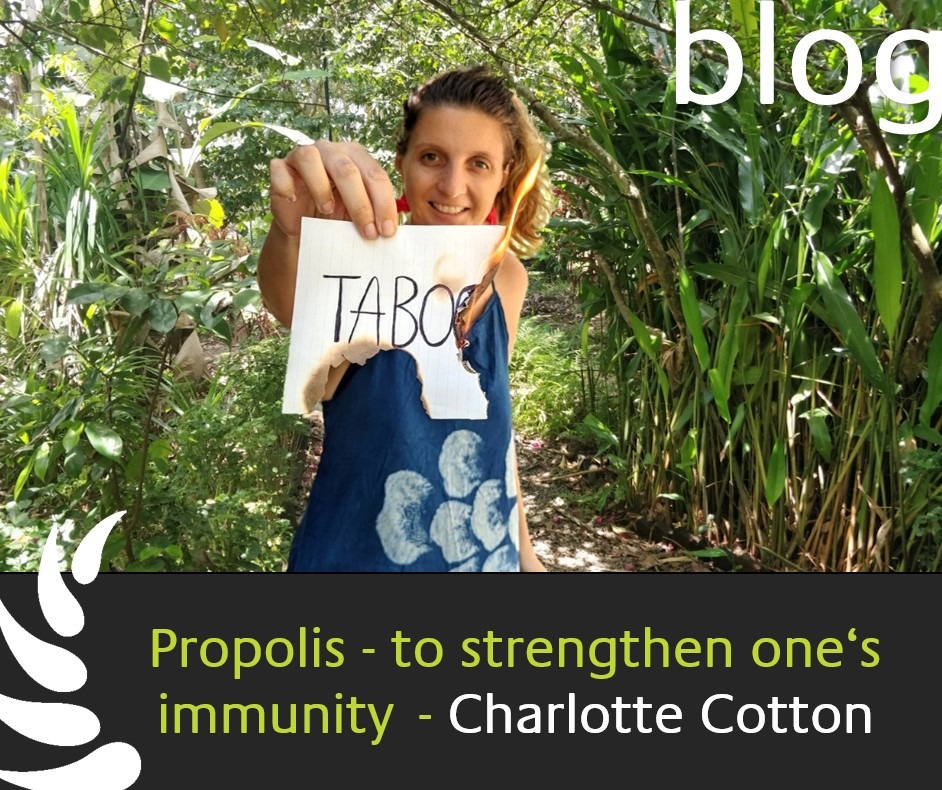Summary
Around the world, women are victims of sexual violence. Research shows that the earlier a sex education program is delivered (for example, in Holland, the education starts in kindergarten), the fewer damages men will do to women in terms of physical, mental, and emotional violence. On the opposite, the most conservative countries that oppose sex education face a lot of sexual violence.
Charlotte grew up with a family trauma, as her grandmother was brutally abused by a male stranger on a train. Through her organization "Propolis", she is visualizing a world where youngsters would be equipped with the communication tools to ask unfiltered questions and to understand how their bodies function without any shame. She wants to empower her participants in workshops to talk freely about their emotions and interact with each other in a respectful way.
– by Charlotte Cotton
I grew up believing that men were dangerous. From my early childhood, I knew I had to be careful around males.
I learned this the hard way because of a family trauma that happened before I was even born. When my grandmother was 38 years old, she got brutally physically abused.
The attempted femicide happened on the night of Mother’s Day when my mother and my grandmother had a violent fight (which was very frequent) and my grandmother left the house late at night to take a last-minute train to visit her own mother in another town.
On the train, a few stations before the arrival, she went to the bathroom and a man slid behind to violently abuse her. After the aggression, he left her for dead and ran away, without stealing any money, her purse, or jewelry. It was a pure act of hate. We never found out who he was or why he did it.
Due to the accident, my grandmother’s face was completely destroyed (her face was unrecognizable because of the many bruises) and she spent weeks in the hospital to recover.
Still today, my family very rarely talks about what happened, and we only refer to it as “grandma’s accident”.
During my youth, I learned how to be suspicious and distrust men. When my parents divorced, my mother found a partner who was difficult, and that perpetuated my idea that men have such a negative impact on women’s lives.
Many years later, I was living a busy corporate life as an expatriate in Hong Kong, when the 2019 riots took a serious turn.
I wanted to change my career, which wasn’t making me happy and decided to join “Jagriti Yatra”, a train for social change makers, touring around India for two weeks and visiting several social projects. Along the journey, I met a menstrual activist, Laad Lohar, who became the co-founder of a social project we launched called “Mewar Collective”, a woman-based movement producing and distributing washable and biodegradable sanitary pads. It was important for both Laad and I to create a safe space made of women, serving, and helping other women. It felt safe and right. During our workshops, we were inviting men and women to attend, but few men were attending, as the majority was thinking the menstruation topic wasn’t related to them.
Back from this fruitful trip, I found a job as a fundraiser for a local NGO in Hong Kong.
One of its missions was to develop and deliver Comprehensive Sexuality Education programs in different schools around the city, to teach the youth how to communicate and behave to reduce crisis pregnancy and domestic violence (nearly two out of five Hong Kong women have experienced sexual violence).
Besides my fundraising role, I started volunteering to help deliver the program in an ethnic minority school.
Speaking with children from Pakistan, Indonesia, and Nepal made me realize how curious and open they actually are toward the topic of sexuality and relationship.
This experience helped me realize how essential communication was and how young children, especially young boys, needed to discover their own bodies at the earliest age, to respect themselves and others.
Today, I have learned to analyze why men can be dangerous if they don’t connect with their emotions and feelings and if they don’t know how to express and communicate.
I don’t fear them anymore, and I am feeling hopeful that a real change will happen from within to reduce violence and create more healthy interpersonal relationships.



